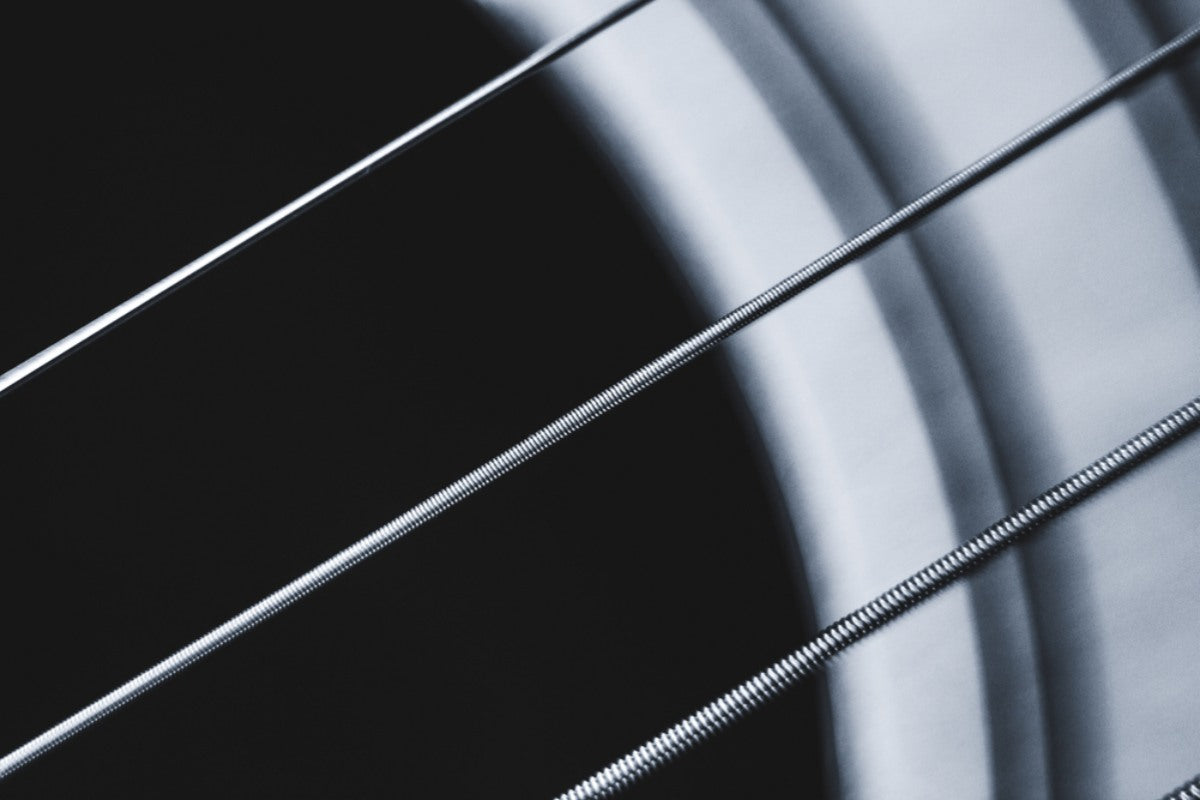One of the most common questions I’m asked is “How long does it take to master a guitar?” It’s a difficult one to answer and will obviously depend on the amount of dedication, how much practice, and how motivated someone is. But over the years, I have noticed a few things that could well help you on your journey to guitar mastery.
So, let’s go through them, starting with…
Well, what’s the answer to the question?
Please don’t be put off by what I’m about to tell you, I’ll go into the reasoning in far more detail as we work through the subject. Plus, remember that we are discussing MASTERING the guitar, not just being good enough to play along with some friends singing around a campfire.
In my opinion, it takes about ten years to master the guitar, practicing a couple of hours every day.
Really? Mastery in only 10 years?
There are two general opinions on this: the first is that you can never really ‘master’ the guitar, or any instrument, for that matter. I disagree, and here’s why.
Using the standard meaning of the word ‘mastering’ doesn’t mean that you know everything that can possibly be known about a subject, or that you’re the best in the world, the best ever, or a bona fide guitar god!
Mid-sixties graffiti in London proclaiming “Clapton is God”
Let’s consider some other ‘masters’ - a master builder is someone who can oversee the building of a house, whereas a master mariner can reliably be put in charge of a ship. Neither are the best ever; they might not even be the best in their state or even city, but they are still ‘masters’.
Or, if we consider education, having a Master's Degree is very impressive; it’s a higher level than a Bachelor's Degree, which is where most university/college students finish their studies. However, a Doctorate, or PhD, is a step up the ladder again, but that comes nowhere near being the best ever. Therefore, as I mentioned, the word mastering doesn’t mean that you can play anything ever performed on a guitar by any guitarist from any genre perfectly. It just means that you can confidently find your way around the instrument and play it with a high level of skill.
Secondly, we could use the ‘standard’ definition of the word mastering, as included in Malcolm Gladwell’s book Outliers, where he states that it normally takes about 10,000 hours of deliberate practice (not messing around on the instrument) to master something.
Therefore, mastering a guitar, or any other craft that requires a high level of skill and knowledge, will take about 10,000 hours of deliberate, and don’t underestimate the power of the word deliberate here, practice.
If you spent two hours a day practicing chords, scales, solos, songs, ear training, music theory, etc., etc., you would be a master guitar player in around 13 years. However, in the majority of cases, it doesn’t take anywhere near that long, as I’ll get to soon.
But my friend mastered the guitar in 2 years!
Maybe in their or your opinion, they did, and when you watch and listen to them play, you are very impressed. However, if they sat down with a true master of the guitar, someone with years upon years of experience, their flaws would become very apparent very quickly. They just can’t make the guitar sing in the same way as it does in the hands of a polished musician.
Which brings us nicely to…
What does it mean to master the guitar?
Most music teachers consider four different levels of development for a student they are beginner, intermediate, advanced, and master. Some split these up even further, such as adding ‘advanced intermediate’ because the intermediate stage is usually the longest.
This only applies to those learning the more freestyle musical genres - blues, rock, pop, jazz, folk, etc., because anyone studying classical music will work through the grade system. So, let’s start with…
Beginner
Congratulations, you’ve started your wonderful guitar journey. If you practice the right techniques with focus and determination, for 20 minutes or so a day (separated into 3 to 5-minute sections), you should make it through this phase in a few weeks to a month. However, due to messing around on the instrument as opposed to focused practice, most players take two to three months.
Quick Disclaimer
I’m not a killjoy and realize that the whole point of playing guitar is to have fun. But only having fun won’t make you a better guitarist. You need to practice for 20 minutes every day, then you can spend as long as you like messing around afterward. The golden rule is that you can’t practice what you can already play; therefore, as soon as you can play something well, it moves from the 20-minute practice section to your fun section and needs to be replaced by something more difficult that you can not play yet.
Anyway, back to the Beginner stage…
At the start of this phase, everything you do or try to play is strange and difficult. Holding the guitar might make your arm or back ache. The fingertips of your fretting hand hurt every time you press down on a string, and the wrist of your strumming hand aches.
However, very soon, the guitar starts to feel more natural, you’re playing your root chords, and they sound ok, not perfect, but ok, and you can just about change between them without stopping. You can also strum along to songs. Your journey has begun!
According to a recent survey by Fender, 90% of guitarists give up playing within the first year, with the majority giving up in the first 90 days!
This is a shocking statistic, but there are a few reasons for it…
-
Many people find guitar playing a lot harder than they expected and are not dedicated to following the process through the difficult beginner stage
-
Lots of beginners play what they are given or buy cheap instruments. Playing a bad or a badly set-up guitar (one that has the strings a long way from the fretboard) is nearly impossible for any level of guitarist, so make sure you buy a decent guitar and get it set up properly
-
There is so much information online that lots of people think they can teach themselves. The problem is that they don’t know what to practice, and lose motivation because everything is too difficult - this is where teachers prove invaluable
-
Playing guitar just isn’t for everyone; you need to have a reason to want to play, ‘being cool’ usually isn’t a good enough reason.
Intermediate
The change between beginner and Intermediate comes when you start playing songs that people actually want to hear. What you are playing sounds like what you hear on the recording. The songs might still be basic in structure, but you are playing the exact guitar parts as performed in the studio when they recorded the song.
That’s why about 80% of everything that is ever played on guitar (regardless of the skill level of the player) is at the intermediate level. This isn’t just the case with a guitar, a master builder will know advanced techniques to create incredible architecture, but he still spends a lot of time laying bricks.
For most players, it takes between eighteen months and three years to progress through the intermediate phase. Therefore, since about 80% of guitar playing is at this level, within a few years, you’ll be playing nearly everything you need to be a rhythm player in a band or be able to accompany the majority of solo artists.
Advanced
This stage is when the guitarist tries to extend the art of their guitar playing. They don’t only want to know the techniques for the songs they can play, they want to learn other, more difficult techniques.
Some of these are extremely hard to play and, in many cases, unrewarding. The amount of time needed to learn some of these techniques often doesn’t make sense, because you will not find many practical applications. As mentioned, 80% of what you hear on Spotify or YouTube is played using intermediate techniques.
However, you only find this out after you’ve learned the techniques. But, if nothing else, they separate the men from the boys, so to speak, taking you from intermediate to advanced level!
This stage normally takes between five and seven years of study.
However…
In my experience, lots of advanced guitarists are less useful in band or performance scenarios than good intermediate guitarists. Their goal is to play difficult techniques at the limit of their abilities. This, in most cases, doesn’t go down well with audiences. This comes back to my point on lots of these advanced techniques being unrewarding.
Master
The difference between a master guitarist and an advanced one is that they have learned how to integrate everything they have studied across their musical journey. They know how the techniques used by advanced players can be interwoven with the chords they learned in their intermediate development to combine into a musically powerful force.
Their playing has got to a stage where they don’t even consider what is hard or easy anymore - they just play it, whatever it is. They are not interested in playing the most difficult things, they play whatever needs to be played and integrate it all together beautifully.
Jimi Hendrix - one of the most masterful players of all time
Masters of the guitar are more diverse than advanced players. It’s not that they can play more styles, although this is often the case, but they have a greater diversity of approaches to music.
How long it takes to go from advanced to master will vary greatly, and depending on personality, ego, passion, and attitude to the instrument and music itself, it may never happen for many guitarists. Being a master is a mindset, you obviously have to have the skills that go along with it, but it isn’t about those skills, it’s about how you think about the instrument and how you combine everything you have ever learned into one cohesive thing - YOU!
Wrapping it Up
I’ve left the absolute shocker till last… progressing from beginner to intermediate, to advanced, to master - is not the end of the guitar journey. In many ways, becoming a master is actually the beginning. So far, the player has taken the exact same journey that every other guitarist takes. When you are at the master stage, you are in charge of your own musical destiny, you are developing the art.
There are absolutely no limits to how good you can become as a guitarist, allowing for available time for practice and how many years you have left to live. So, wherever you are on the thrilling journey to guitar greatness, enjoy the journey and aim for the mountain tops, there will be bigger summits to master further on your journey, but savor every step, and you will achieve your goals!




